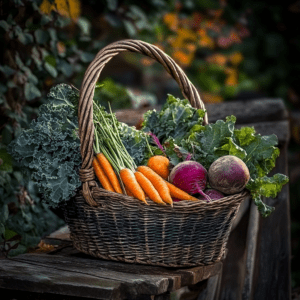When Jesus commissioned His disciples to spread the gospel to all nations, He was not just sending them on a mission; He was laying the foundation for a global movement that would continue until the end of time. As followers of Christ, we share in this Great Commission, but fulfilling it requires more than just planting churches—it requires ensuring that these churches are capable of standing on their own, thriving, and continuing the mission without relying on outside support. This is the heart of our mission at Holy and Healthy Homesteads: to plant self-sustaining, self-propagating churches that can fulfill the Great Commission independently, free from the constraints of financial dependency.
Empowering the Global Church: Building Self-Sustaining Communities of Faith
With the diverse and expansive landscape of global Christianity, the challenge of establishing thriving churches is more complex than ever. While the message of the gospel remains unchanged, the
methods of sustaining that message must evolve to meet the unique needs of different communities. This is where the vision of self-sustaining churches comes into play—a model that not only plants seeds of faith but also ensures that those seeds grow, flourish, and continue to bear fruit for generations to come.
The Global Church: A Diverse Landscape
The global church is as varied as the cultures, languages, and traditions that make up its members. From bustling urban centers to remote rural villages, the church exists in countless forms, each with its own challenges and opportunities. However, one common thread unites them all: the need for sustainability.
Too often, churches in developing regions find themselves dependent on outside funding for their survival. As referenced in a previous blog, while initial support from external donors can provide a vital lifeline, it can also lead to unintended consequences that stifle the church’s growth and autonomy. These churches may struggle to connect deeply with their communities, adapt to local needs, or establish a long-term vision for ministry. Without the means to support themselves, they may become vulnerable to collapse when external funding diminishes or disappears.
A Model for Sustainability: The Self-Sustaining Church
At Holy and Healthy Homesteads, we believe that the key to a thriving global church lies in empowering local congregations to become self-sustaining. This model is not just about financial independence; it’s about creating churches that are spiritually vibrant, deeply rooted in their communities, and capable of self-propagation without reliance on external donors.
The Self-Sustaining Church: A Vision of Maturity
A self-sustaining church is not just a goal but a dynamic reality that embodies the principles of faith, resilience, and community. It is a church that has grown beyond dependency and has matured into a thriving, independent body capable of supporting itself and its mission. Below are key characteristics that define a self-sustaining church at its maturity, serving as a blueprint for what we aspire to achieve. These elements highlight the essential aspects that ensure a church is not only surviving but flourishing in its purpose and impact.
1. Financial Independence
A mature self-sustaining church generates its own income through various means, such as local tithes and offerings, income from church-owned enterprises like farms or small businesses, and community-based initiatives. These resources are sufficient to cover the church’s operational costs, fund its ministries, and support its outreach efforts. The church is not dependent on external donors for survival but can instead reinvest any surplus into further ministry or community projects. Instead of its hands outstretched for funding, they send support to others.
2. Spiritual Maturity and Leadership
The church is led by spiritually mature, locally recognized leaders who have been trained and equipped to shepherd the congregation. These leaders are capable of teaching sound doctrine, mentoring new believers, and guiding the church in fulfilling the Great Commission. They are deeply rooted in the local culture and context, enabling them to minister effectively and authentically within their community.
3. Strong Community Ties
A self-sustaining church is deeply integrated into its local community, actively engaging with and serving the needs of the people around it. It acts as a hub for social, emotional, and spiritual support, providing services such as education, healthcare, and food security through initiatives like church-owned farms. The church’s presence is seen as a blessing to the community, and it plays a vital role in the social fabric of the area.
4. Resilient and Adaptive Ministry
Mature self-sustaining churches are resilient in the face of challenges and adaptive to changing circumstances. They have developed ministries that are relevant to their community’s needs and are capable of evolving as those needs change. Whether responding to a local crisis or adapting to cultural shifts, the church is equipped to maintain its mission and continue serving effectively.
5. Disciple-Making and Evangelism
The church is actively engaged in disciple-making, raising up new leaders from within the congregation and sending them out to plant new churches or lead ministries. Evangelism is a natural outflow of the church’s life, as members are equipped and encouraged to share their faith with others. The church is not just sustaining itself but also multiplying, contributing to the growth of the global body of Christ.
6. Balanced Ministry Focus
A mature self-sustaining church balances inward and outward ministry. While it nurtures the spiritual growth and well-being of its members, it also maintains a strong focus on outreach and mission. This balance ensures that the church remains healthy internally while continuing to fulfill its external calling to spread the gospel and serve the broader community.
7. Effective Resource Management
The church manages its resources—financial, human, and material—wisely and responsibly. It invests in long-term sustainability by developing assets like land, buildings, and businesses that can generate income and provide for the church’s needs. The leadership team is trained in stewardship and governance, ensuring that all resources are used effectively to further the church’s mission.
8. Empowered Congregation
The congregation is empowered, with members actively participating in the life and mission of the church. They take ownership of various ministries, contribute their time and talents, and are involved in decision-making processes. This shared responsibility fosters a sense of community and ensures that the church’s ministry is sustainable even as leadership roles evolve over time.
 9. Propagating Faith
9. Propagating Faith
A mature self-sustaining church is a church that plants churches. It has the vision, resources, and leadership to expand the Kingdom of God by establishing new congregations in nearby regions or even across borders. These new churches are also trained to be self-sustaining, creating a multiplying effect that spreads the gospel far beyond the original congregation.
10. Christ-Centered Identity
At its core, a mature self-sustaining church is deeply rooted in its identity in Christ. It is committed to living out the teachings of Jesus, embodying the love, grace, and truth of the gospel in every aspect of its ministry. This Christ-centered focus ensures that the church remains true to its mission and purpose, regardless of the challenges it may face.
In essence, a self-sustaining church at its maturity is a beacon of hope, a pillar of its community, and a force for the gospel that is both enduring and expanding. It represents the fulfillment of the vision to create churches that are not only independent in their operation but are also deeply effective in their mission to spread the love and message of Jesus Christ.
A Vision for the Future
As we look ahead, this vision is clear: a global network of churches that are self-sustaining, self-propagating, and fully equipped to fulfill the Great Commission. We believe that this model is not only possible but essential for the future of global missions. Our commitment to this vision is unwavering. We know that the road ahead will require dedication, innovation, and collaboration, but we are confident that with God’s guidance, we can achieve it. The work we do today will lay the foundation for a stronger, more resilient global church that is capable of fulfilling its mission in every context.
How You Can Be Involved
The mission to build self-sustaining churches is not something we can accomplish alone. It requires the collective effort of believers around the world who share our vision and are willing to invest in the future of the church. Whether through prayer, financial support, or hands-on involvement, there are many ways you can contribute to this mission.
We invite you to partner with us in this important work. Your support can make a tangible difference in the lives of believers across the globe. Together, we can create churches that are not only self-sustaining but also vibrant, growing communities of faith that continue to spread the gospel for generations to come.
Conclusion: Planting Seeds of Hope
At Holy and Healthy Homesteads, we are committed to planting seeds of hope that will grow into thriving churches, capable of standing strong and continuing the mission without relying on external support. This work is not just about planting churches; it’s about planting the seeds of faith, community, and sustainability that will bear fruit for generations to come.
We believe in a future where every church is equipped to fulfill its mission independently, free from the constraints of financial dependency. This is the future we are working towards, and we invite you to join us on this journey. Together, we can empower the global church to thrive and fulfill the Great Commission in every corner of the world.









